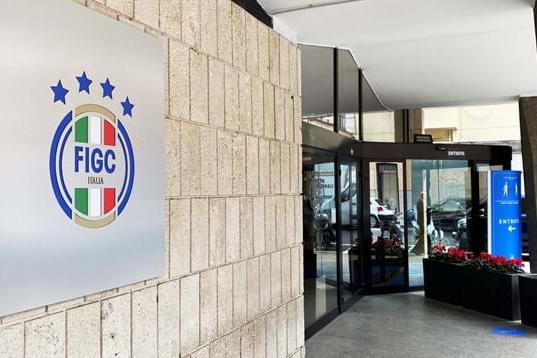PHOTO
"Appreciating the climate of constructive dialogue in the meeting, we had the opportunity to reiterate our views on Minister Abodi's objective of stability and economic-financial sustainability in professional football, but the problem is not the checks and the idea identified does not solve the problem. Rather, we must work together to identify even more rigid principles for National Licences". This was what the FIGC president, Gabriele Gravina, had to say upon leaving the meeting with the Minister for Sport and Youth, Andrea Abodi.
During the meeting, President Gravina expressed opposition regarding the establishment of the so-called 'Body for the economic and financial supervision of professional sports clubs', highlighting, point by point, some critical issues found after analysising the document published on May 3rd, starting from respect for the principle of sporting autonomy recognised both nationally and internationally. Gravina also informed Minister Abodi of the discussions he had with UEFA and FIFA, making him aware of the letter, received yesterday, with a request for urgent explanations to be sent by Monday 13 May, in which they highlight great concern.
The FIGC's position is clear: this new proposal is in clear contrast with the prohibition of political interference in the regulations and activities of the FIGC, sanctioned by articles 14 and 15 of the FIFA Statute, which all Federations must comply with, under penalty of possible sanctions. To this, taking into account that the activity relating to the checks of professional clubs and admissions to leagues is subject to the careful supervision of CONI, there would also be an obvious contravention to rule 24.6 of the Olympic Charter, which requires CONI to preserve their autonomy and resist any type of political pressure.
Gravina then raised doubts about the fundamental principle of autonomy in the sports industry, historically sanctioned by the state system and backed up by two rulings of the Constitutional Court (most recently with sentence 160/2019) and of the Court of Cassation. Furthermore, it does not appear to be consistent with resolutions at European level which, to date, have always recognised the autonomy and specific nature of the sports system (provided that the rules and measures adopted by it are respectful of the principle of proportionality and reasonableness), but they have never recognised the possibility of government intervention in activities delegated to the sports authorities. In this regard, the European Parliament has always supported UEFA in adopting consistent control at a European level. Last but not least, implementation and compatibility problems with the Federation's regulatory system were also noted from a time perspective and with regard to the sanctioning system.
Having said all this, the FIGC president has now confirmed to Minister Abodi his willingness to act with even greater severity on the regulation of economic-financial sustainability, inviting the Minister to indicate the new guidelines to CONI, responsible by law for issuing the principles and supervising the work of the Federations.
